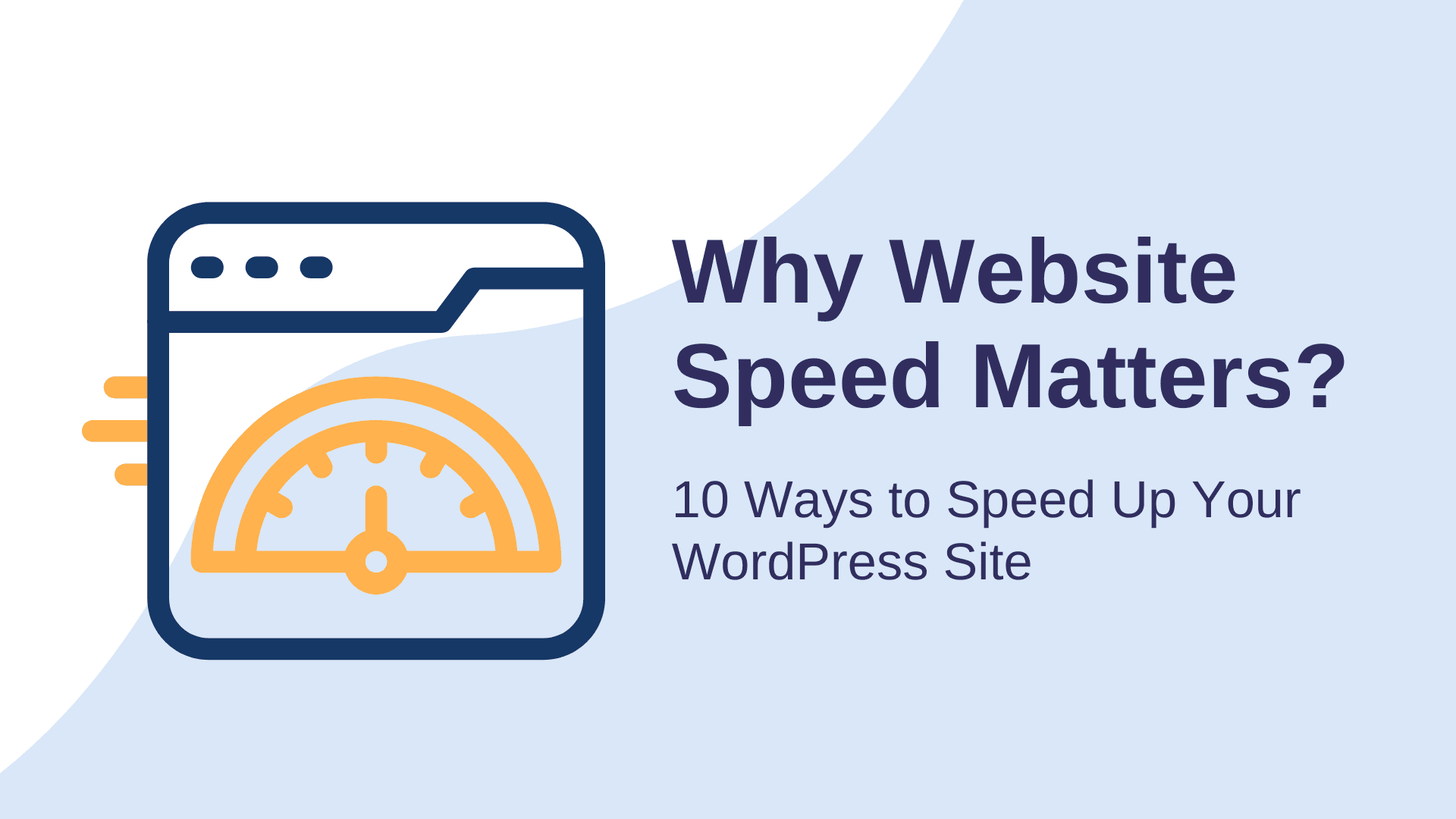Table of Contents
Why Website Speed Matters?
Website speed is a crucial factor for user experience (UX), search engine optimization (SEO), and overall online success. Studies show that users tend to leave websites that take more than 3 seconds to load, resulting in high bounce rates and missed conversion opportunities. Google also prioritizes fast-loading sites, meaning your site’s speed directly affects search rankings.
For businesses and individuals using WordPress, optimizing performance isn’t just about numbers—it’s about delivering seamless, engaging experiences that keep visitors on your site. As a Freelance WordPress Developer, I ensure that my clients’ sites load quickly, providing UI/UX design, SEO optimization, and project management solutions that align with their business goals.
This guide will walk you through the top ten ways to speed up your WordPress site, helping you offer faster, more enjoyable experiences for your users.
1. Use a Lightweight Theme
Choose a lightweight, minimalistic theme with clean code to reduce loading times. Avoid themes with unnecessary elements like excessive animations and bloated plugins. Frameworks like Astra, GeneratePress, or custom-built themes are great for performance.
Service Note: I offer custom theme development to ensure your website remains fast, secure, and visually appealing.
2. Optimize Images
Large, unoptimized images are one of the leading causes of slow websites. Compress your images using tools like TinyPNG or plugins such as Smush. Consider using WebP format for better compression without quality loss.
- Use lazy loading to defer image loading.
- Serve scaled images to match screen sizes.
Service Note: I incorporate image optimization strategies as part of my SEO and UI/UX services to ensure better loading speeds and enhanced visuals.
3. Minify CSS, JavaScript, and HTML
Minification removes unnecessary characters (like spaces and comments) from code to make it lighter. Use plugins like Autoptimize or W3 Total Cache to minify your CSS, JS, and HTML files automatically.
- Minify inline styles and scripts for improved speed.
- Combine multiple CSS and JS files to reduce HTTP requests.
4. Enable Caching
Caching stores static versions of your site to reduce server load and enhance speed for repeat visitors. Install plugins like WP Rocket or W3 Total Cache to implement page caching efficiently.
Service Note: I integrate caching strategies into WordPress websites to ensure long-term performance improvements.
5. Use a Content Delivery Network (CDN)
A CDN distributes your website’s files across multiple servers worldwide, reducing the distance between the user and the server. Popular options include Cloudflare and BunnyCDN.
6. Reduce Plugin Usage
Too many plugins can slow down your site and introduce security risks. Evaluate your current plugins and deactivate or delete unnecessary ones. Look for lightweight, multi-functional plugins to replace multiple single-purpose ones.
Service Note: As part of my Project Management services, I assess and optimize plugin usage to streamline site performance.
7. Optimize Database Performance
Over time, your WordPress database accumulates overhead, such as post revisions, spam comments, and expired transients. Regularly clean your database using WP-Optimize or Advanced Database Cleaner to maintain peak performance.
- Delete unnecessary post revisions and drafts.
- Optimize tables to reduce bloat.
8. Enable Gzip Compression
Gzip compression reduces the size of your website files, making them faster to load. You can enable it via your hosting control panel or by using plugins like WP Rocket.
9. Use Fast, Reliable Hosting
Your choice of hosting has a significant impact on your website’s speed. Opt for managed WordPress hosting providers like Kinsta, SiteGround, or Cloudways for better performance and uptime.
Service Note: I help clients select the best hosting plans that align with their business goals, ensuring optimal speed and scalability.
10. Update WordPress Core, Themes, and Plugins Regularly
Outdated WordPress components can slow down your site and make it vulnerable to security issues. Regular updates ensure your site runs on the latest code and performs efficiently.
Final Thoughts: Speed Up Your WordPress Site Today
A fast-loading WordPress site isn’t just about better SEO—it’s about delighting users, reducing bounce rates, and maximizing conversions. Implementing these ten strategies will set you on the path to faster performance. However, maintaining speed requires consistent monitoring and optimization.
As an experienced Freelance WordPress Developer, I offer tailored solutions that cover everything from site development and SEO to UI/UX design and project management. Whether you need a speed boost or a complete site overhaul, I’m here to help.
Ready to take your WordPress site to the next level? Contact me today for a free consultation, and let’s explore how we can enhance your site’s speed, functionality, and user experience.


Top Security Plugins to Keep Your WordPress Website Safe - Mir M
October 25, 2024[…] Read: 10 Ways to Speed Up Your WordPress Site […]